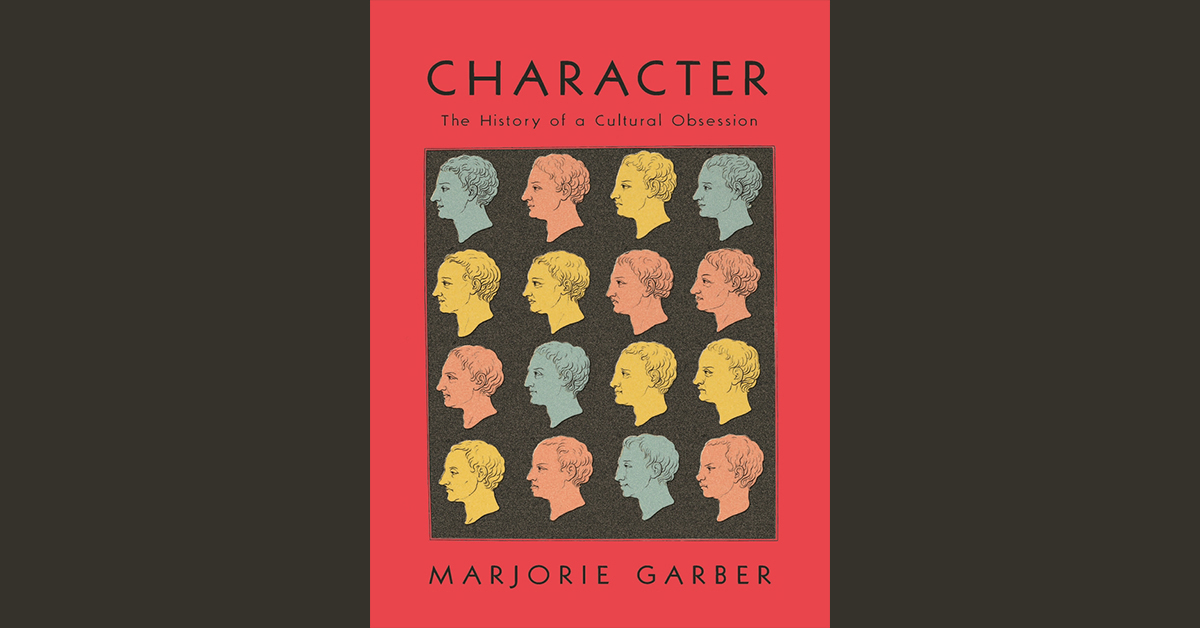Jan 29, 2022 By: yunews

Marjorie Garber | Farrar, Straus and Giroux | 2020
Reviewed by Rabbi Dr. Stu Halpern
What does it mean to be a character? To have character? Can animals have character? What about old furniture? And why did we used to assume presidents of the United States had it in spades? Marjorie Garber's Character: The History of a Cultural Obsession is an appropriately comprehensive attempt to historically unpack the word. Tracing the concept's origins to Aristotle, Garber, a prolific author and professor of both English and visual and environmental studies at Harvard, documents the concept's range of meanings and manifestations up to the present day. As she writes, typically, "To 'have' character (or to be a person 'of character') is to be ethical and praiseworthy—or, as in the case of my desk, to show signs of experience and wear; to 'be a character' is to be singular and eccentric; to have 'character issues' is to fail to meet certain accepted standards for behavior; to be a 'character type' is to cross boundaries across psychology, psychoanalysis, and literature." Though this all might be simple enough, she asks us to consider, is character learned or innate? Changeable? Hereditary? We moderns, Garber notes, relate character to an act of writing itself—see, for example, Twitter's limit of 280 "characters." In fact, she notes "to write down" was one of the earliest meanings of the word "character." How much then, does how and what we write, and, as some have questioned, how we physically look—even the shape of our heads—relate to our character? Over 400 pages, Garber's tour-de-force offers a breathtaking range of sources and subtopics. She notes that "leadership," one of our more contemporary buzzwords, used to be called "character building"—thus self-help titles ranging from Robert E. Lee on Leadership to Shakespeare on Management. Politicians, sports figures, and celebrities get much attention in the volume. Donald Trump is brought up far too often, but readers also will learn from an analysis of Hillary Clinton as the "Lady Macbeth of Chappaqua," John Wooden's "Pyramid of Success," and Pete Rose's exclusion from the Baseball Hall of Fame (one sportswriter encouraged the Hall to "forget character, welcome characters.") in addition to a lengthy discussion of Christine Blasey Ford's accusations against Brett Kavanaugh. A number of works of literature are surveyed for their take on the topic, from Alfred Kazin's memoir A Walker in the City ("character meant demonstrative obedience; but teachers already had it—how else could they have become teachers?...the President of the United States had the greatest conceivable amount of it) to the Tin Man in The Wonderful Wizard of Oz, among dozens of others. Psychologists, she writes, place a stress on the distinction between one's personality and one's character, though "pinning it down is not easy." Maybe the former is about behavior and the latter is related to values and ethics. Popular YouTubers are known as social media "personalities" but aren't exactly viewed for their moral rectitude. Citing Jerome Karabel, Garber notes that "character" as an admissions criteria for the Ivy League in the 1920s was a way to keep out the Jews. That, of course, raises numerous questions about what it means to have a national character. Is such a concept, Garber wonders, "a set of beliefs, a racial or cultural inheritance, an instance of wartime grit, a wishful fantasy, a political slogan"? Consideration of the nature of America's character leads inevitably to a discussion of Tocqueville's Democracy in America, back to Jews in the context of anti-Semitism, the "melting pot," and Bill Clinton and Monica Lewinsky. One gets the picture—the analysis is long on citations and references (one is hard-pressed to find a paragraph without a quotation) and lamentably short on the author's own analysis. So much of what "character" means is left unanswered, not due to any fault of the author. Instead of conclusions, there are curiosities, from bizarre physiognomic attempts to identify character to its many modern euphemisms. Citing Bari Weiss, Garber notes how words like "strong" and "healthy" are often, in the context of women, code for "skinny" and "beautiful," an indication of shifts in what language is in actuality related to what we might presume character means. As Garber notes in her conclusion, "we may not agree on what it is, but we know when it is lacking." Hoping that, despite its nebulousness, the concept of character will not go out of style and be dismissed as a remnant from a "quaint… more naïve, more ethical, or at least brazen past", Garber admits the topic of her study "may not be perfect, or perfectible, but it is at present the best we've got." To read more Straus Center book reviews, click here. You can learn more about the Straus Center and sign up for our newsletter here. Be sure to also like us on Facebook, follow us on Twitter and Instagram and connect with us on LinkedIn.
